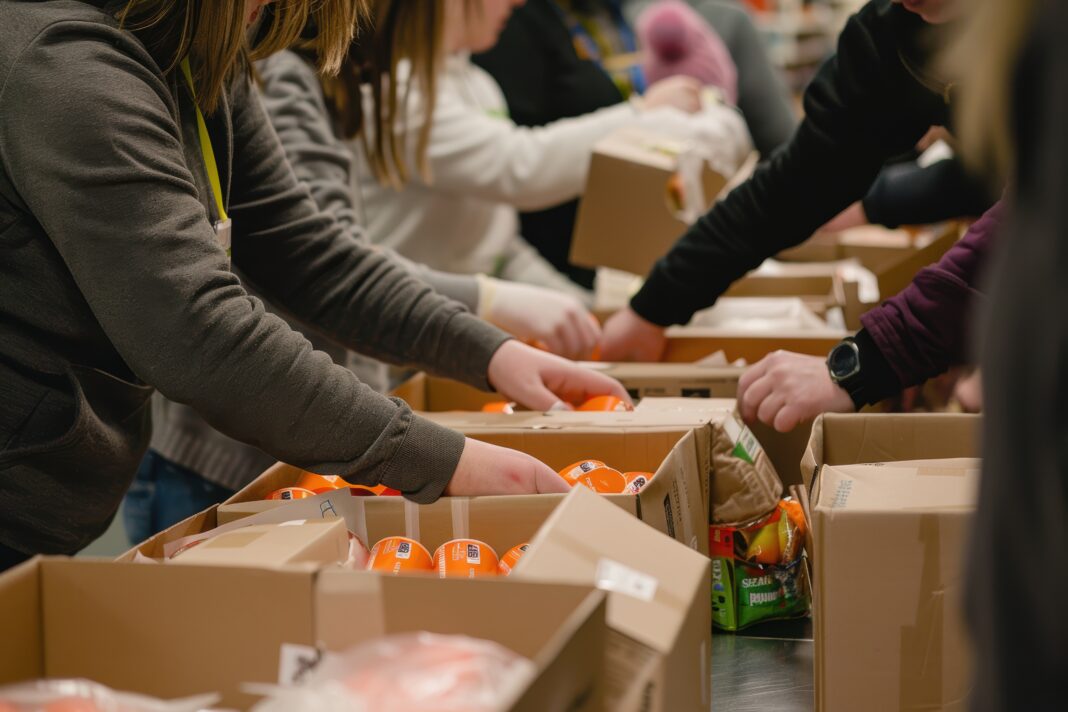A basic human right is beyond reach for some people in Scarborough, according to Toronto City Council. That human right is food.
Last December, Council declared food insecurity an emergency throughout Toronto. In order to combat food insecurity and provide the community with access to food, the city has numerous food banks to meet the demand for safe, affordable and nutritious food available to all.
One such local food bank is Deacon’s Cupboard Food Bank, which is a part of the Christ Church Scarborough Village. It has been serving the Scarborough community for over 20 years and is now seeing increasing demand.
“The priest at the time discovered that people were not coming to church because they had nothing left to put in the collection plates and were short of food at the end of the month,” says Deacon Jacquie Bouthéon, Coordinator of the Deacon’s Cupboard Food Bank.
Back when it was started, it was designated as an emergency food bank where people could come once a month and get food based on the number of people in the family.
Currently, Bouthéon says, the numbers have been steady in terms of people and needs across central Scarborough. “Averaging around 170 families, maybe 550 people, it goes up and down depending on the time of the month and when the different Social Security payments come out. But if it happens to be a month with five weekends, it becomes difficult for families,” she says, adding that the attendance can sometimes be low due to bad weather.
Deacon’s Cupboard is in the Feed Scarborough and Daily Bread Food Bank system. This means that all the clients are registered to a program called Link to Feed, which comes with a unique identification number.
“People can access the food bank only once a week. With this number, we track this. If we identify any double dippers, they are reminded of the rules and give them a limited amount of food depending on what is available,” says Bouthéon.
Bouthéon shares that to meet increasing demand, they have had to look for more sources of food, like charities. She says, “Because our operation is purely voluntary and because of the space we use in the church, which is often rented out, we can open only one morning a week, but I have locked into things like GlobalMedic and Rising Sun FD.”
Deacon’s Cupboard does not run on a packaged bag concept. Rather all the food is laid on the table and people are given an opportunity to choose what they need. Talking about the challenges they currently face, “To some extent it’s supply, but we’re fortunate in having a lot of money donations so that we can go and shop. But without these money donors, we would be in a difficult position,” says Bouthéon.
Eleanor Lorde has been a volunteer at the food bank for many years and she recalls seeing in the past about 12 people a month. But the pandemic blew it out to the scale it is now. She says that sometimes it is hard to meet the demand.
“Sometimes, at the end, we hardly have anything to give people who are at the end of the lines,” Lorde says, adding that food banks in Scarborough need more supplies because the demand is going to keep increasing.
“If people had more money to spend, they would not need access to food banks,” says Lorde when asked what is needed to tackle food insecurity.
Dr. Valerie Tarasuk, a Professor Emeritus of Nutritional Sciences at University of Toronto, shares that recent reports showed an increase in food insecurity both in Ontario and across Canada.
“The province has a very important responsibility here. They need to make sure that people have adequate incomes because food banks should not be tackling the problem of food insecurity. The province needs to support individuals, families, Ontario Works and also Ontario Disability Support Program,” says Tarasuk.
Community-based organisations need to call out both the provincial and federal governments about their responsibilities, she says. “It is critical that they provide adequate incomes as there is nothing else that is going to change the trajectory here. Community- based organizations need to make the point clear that they are not the answer and that there is a need for work at the provincial and federal level until we see that this problem is never going to get better,” says Tarasuk.






